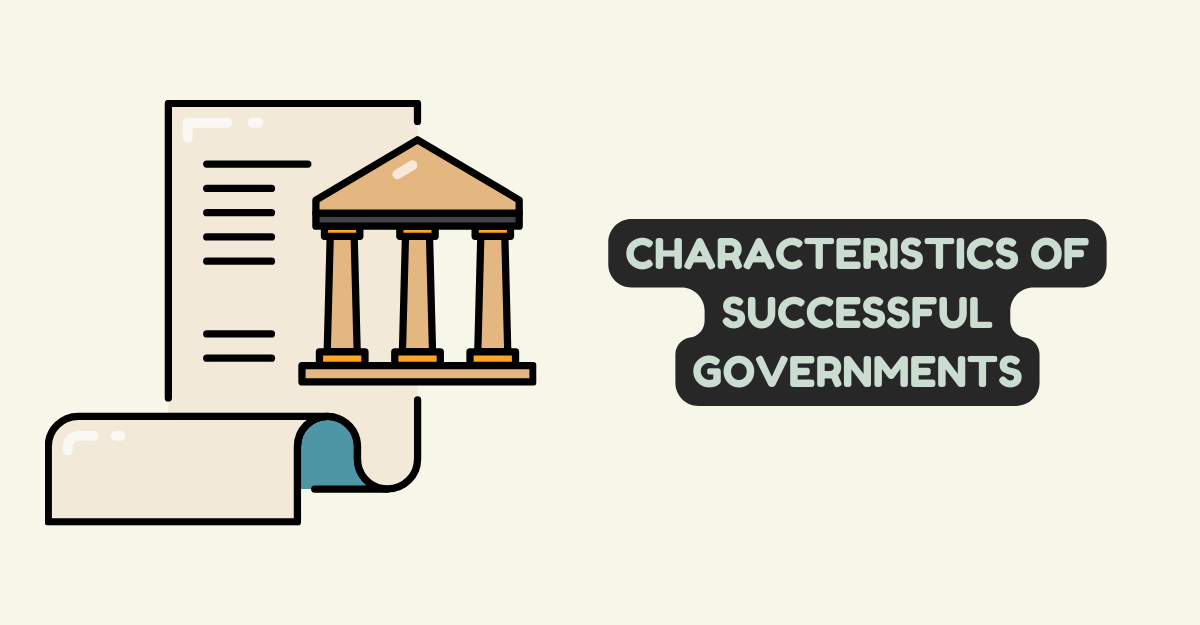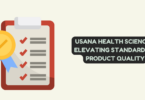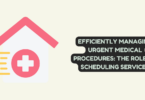
Characteristics of successful governments
In the intricate tapestry of governance, success isn’t merely a happenstance occurrence; it’s a deliberate fusion of vision, strategy, and execution. Governments, whether local, national, or international, navigate complex terrains of challenges, expectations, and responsibilities. Yet, amid this labyrinth, certain characteristics emerge as the bedrock of successful governance, shaping policies, fostering progress, and nurturing societies. From prudent planning to adaptive leadership, from robust communication to technological integration, the hallmarks of effective governance are as diverse as they are crucial.
Clear and Comprehensive Planning: The Cornerstone of Success
At the heart of any successful government lies a clear and comprehensive plan. A roadmap that not only outlines objectives but also delineates the means to achieve them. This strategic blueprint serves as a guiding beacon, steering policies, initiatives, and resource allocation towards desired outcomes. However, in an era characterized by rapid change and unforeseen disruptions, the ability to adapt and evolve plans is equally vital.
Adaptive Leadership: Navigating Uncertainty with Foresight
Effective governance transcends mere planning and extends into the realm of leadership. Visionary leaders adept at inspiring collective action and fostering inclusivity lay the foundation for enduring success. They possess the acumen to navigate uncertainties, the empathy to understand diverse perspectives, and the resilience to weather storms. Moreover, they recognize the imperative of communication as a linchpin of governance.
Harnessing Technology for Transformation
In the arsenal of successful governments, innovative tools like plan review software play a pivotal role. By harnessing the power of digital solutions, governments can streamline the planning process, enhance collaboration, and ensure the agility needed to navigate dynamic landscapes. One such tool gaining prominence is ProjectDox, a comprehensive platform designed to facilitate plan review and approval processes.
Revolutionizing Government Processes
ProjectDox empowers governments to expedite decision-making while maintaining regulatory compliance. Through seamless integration with existing systems and customizable workflows, it catalyzes efficiency and effectiveness across diverse departments and agencies. By digitizing document management, enabling real-time collaboration, and enhancing transparency, ProjectDox serves as a force multiplier, augmenting their capacity to translate plans into tangible outcomes.
Inclusive Engagement: Empowering Citizens, Fostering Collaboration
Furthermore, the fabric of effective governance is woven with threads of innovation and adaptability. In an era of rapid technological advancement, governments must embrace innovation as a catalyst for progress. Whether harnessing artificial intelligence for data-driven decision-making or leveraging blockchain for transparent governance, embracing emerging technologies is imperative. Here, the integration of tools like plan review software and platforms like ProjectDox emerges as a testament to the transformative power of technology in modern governance.
Global Cooperation: Navigating Transnational Challenges
Moreover, effective governance extends beyond national borders, encompassing international cooperation and collaboration. In an interconnected world fraught with transnational challenges, from climate change to pandemics, no government can thrive in isolation. Herein lies the importance of diplomacy, multilateralism, and global partnerships. Successful governments engage proactively on the world stage, leveraging collective intelligence and shared resources to address common challenges and seize opportunities for mutual benefit.
Maintaining Accountability and Oversight: Ensuring Responsiveness and Transparency
In the pursuit of success, however, governments must remain vigilant against the pitfalls of complacency and short-sightedness. The path to progress is fraught with obstacles, from bureaucratic inertia to vested interests. Here, the role of accountability and oversight cannot be overstated. Robust mechanisms for monitoring, evaluation, and feedback are essential to ensure that governance remains responsive, responsible, and accountable to the needs and aspirations of its citizens.
Empowering Citizens Through Participation: The Key to Inclusive Governance
In the realm of effective governance, empowering citizens through active participation stands as a cornerstone principle. Governments that foster an environment of inclusivity and encourage civic engagement are more likely to garner public trust and cooperation. By providing avenues for citizens to voice their opinions, contribute ideas, and participate in decision-making processes, governments can tap into the collective wisdom of their populace. Through initiatives such as town hall meetings, community forums, and online platforms, successful governments bridge the gap between the governed and the governing, forging stronger bonds of collaboration and accountability.
Sustainable Development: Balancing Progress with Environmental Stewardship
Amidst the pursuit of economic growth and societal advancement, successful governments recognize the imperative of sustainable development. Striking a delicate balance between progress and environmental stewardship is paramount to ensuring the well-being of current and future generations. By adopting policies that promote renewable energy, mitigate climate change, and conserve natural resources, governments demonstrate their commitment to long-term sustainability. Moreover, by integrating sustainability principles into urban planning, infrastructure development, and economic policies, governments lay the foundation for resilient and thriving communities that endure beyond the constraints of short-sighted gains.
Investing in Education and Healthcare: Building Human Capital for the Future
In the quest for prosperity and societal advancement, investments in education and healthcare emerge as linchpins of success. Recognizing that human capital is the most valuable asset of any nation, successful governments prioritize access to quality education and healthcare for all citizens. By investing in early childhood education, vocational training, and lifelong learning opportunities, governments empower individuals to reach their full potential and contribute meaningfully to society. Similarly, by ensuring universal access to healthcare services, preventative care, and essential medicines, governments safeguard the well-being of their populace and foster a healthier, more productive workforce.
Conclusion
The characteristics of successful governments are multifaceted and dynamic, reflecting the evolving nature of governance itself. From visionary leadership to strategic planning, from technological innovation to inclusive engagement, the hallmarks of effective governance converge to create a framework for sustainable progress and prosperity. As we chart the course ahead, let us heed the lessons of the past, embrace the challenges of the present, and forge a future defined by effective, inclusive, and visionary governance. In this journey towards success, tools like plan review software and platforms like ProjectDox serve as invaluable assets, enabling governments to navigate complexities, enhance efficiency, and deliver meaningful outcomes for the betterment of society.






